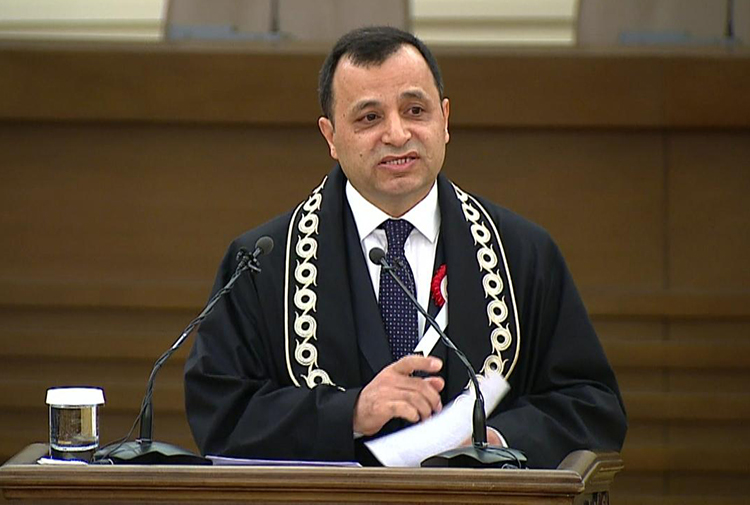Zühtü Arslan, the chief justice of Turkey’s Constitutional Court, criticized the Supreme Court of Appeals on Friday for failing to comply with the rulings of the top court in the case of a jailed lawmaker.
Arslan stressed that differences of opinion or interpretation cannot be a justification for not following the decisions of the Constitutional Court.
His criticism follows a judicial crisis in which the top court had ruled twice that rights of Can Atalay, who was elected to parliament in May from the Workers Party of Turkey (TİP) and is still in prison despite gaining parliamentary immunity, were violated due to his continued incarceration. The 13th High Criminal Court, however, sent the case back to the Supreme Court of Appeals twice, defying the top court’s rulings.
The top appeals court, which in September upheld an 18-year conviction for Atalay in the Gezi Park trial, also defied the Constitutional Court’s rulings twice, prompting Atalay’s lawyers to file their third application.
The lawyers said the courts’ refusal to comply with the top court decision constitutes a violation of Article 153 of the Constitution, which says the top court’s rulings are “final” and “shall be binding on the legislative, executive, and judicial organs, on the administrative authorities, and on persons and corporate bodies.”
Speaking at a ceremony for interns from 25 universities who completed their training in constitutional law, Arslan addressed the Supreme Court of Appeals, stressing a shared responsibility to avoid arbitrary actions that could distance Turkey from the rule of law and plunge it into “a whirlpool of lawlessness.”
Chief Justice Arslan highlighted the safeguarding of freedoms as a key mission of the Constitutional Court and criticized the justifications presented for non-compliance with its decisions. He said the justifications are not supported on constitutional and legal grounds.
The refusal of a local court and the Supreme Court of Appeals to abide by the Constitutional Court decisions has sparked widespread criticism and accusations of a judicial coup. The appeals court judges even filed criminal complaints against members of the Constitutional Court due to their ruling in Atalay’s case, marking an unprecedented move within the Turkish legal system.
The Turkish judiciary faces widespread criticism for its perceived lack of independence. Critics accuse President Recep Tayyip Erdoğan of exerting control over the judiciary and establishing one-man rule in the country, particularly after a coup attempt in 2016, following which he launched a massive crackdown on non-loyalist citizens and the country’s subsequent transition to a presidential system of governance, which granted him vast powers.
Many say there is no longer a separation of powers in the country and that members of the judiciary are under the control of the government and cannot make judgments based on the law.
In a development that validated the critics, Turkey was ranked 117th among 142 countries in the rule of law index published by the World Justice Project (WJP) in October, dropping one rank in comparison to last year.

